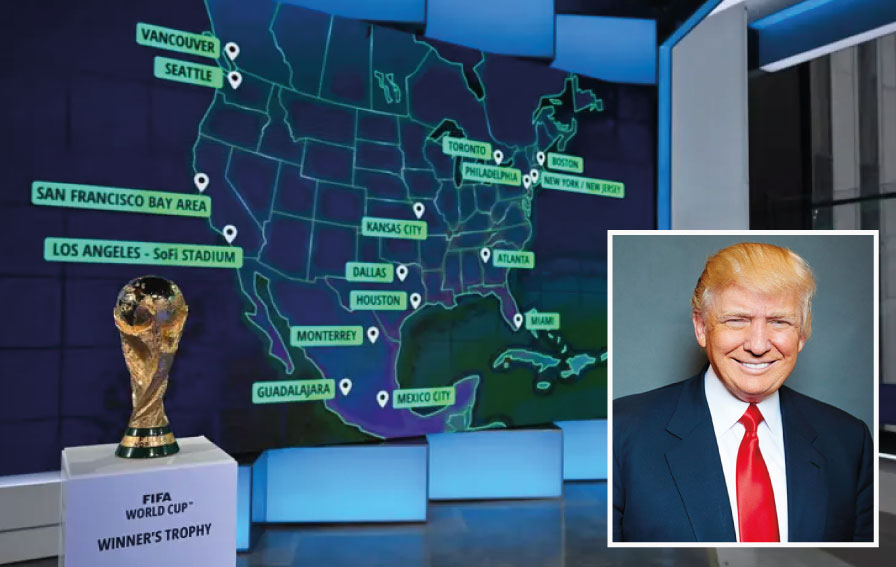Shortly after the announcement of the 2024 U.S. Presidential election results, FIFA President Gianni Infantino took to social media with a message of optimism and excitement for the future.
“Congratulations, Mr. President! We will have a great FIFA Club World Cup in the United States of America! Football Unites the World,” He posted.
With the U.S. set to host the 2026 World Cup, this marks the first time since 1994 that the country will serve as the main venue for the world’s biggest sporting event.
The 2026 tournament, which will be jointly hosted by the United States, Canada, and Mexico, represents a monumental moment in the history of the World Cup.
It’s poised to be the largest and most inclusive tournament ever, both in terms of geography and participation.
As Infantino pointed out, it will be a showcase of how football, as the world’s most popular sport, has the power to bridge cultures, forge partnerships, and unite nations. However, beneath the optimistic rhetoric, significant challenges lie ahead particularly when it comes to the relationship between the host nations and the evolving political landscape in the U.S.
While the U.S., Mexico, and Canada have made strides in their preparations, the global sporting community is already beginning to scrutinize the political implications of the 2026 tournament.
The administration of former U.S. President Donald Trump, which was known for its tough stance on immigration and trade policies especially in relation to Mexico could present complications for the successful execution of the event.
The Trump administration’s border policies, including stringent visa restrictions and tariffs, could create barriers not only for athletes and media personnel seeking to cover the tournament but also for the international visitors expected to flood into North America for the World Cup.
With the joint hosting model relying on seamless travel between the three countries, these restrictions could lead to logistical nightmares.
More intensive border checks, increased delays, and potential visa issues could complicate the movement of players, fans, and essential World Cup personnel.
Additionally, Trump’s trade policies, particularly the imposition of tariffs, could create friction with international sponsors and partners crucial for funding and supporting the event.
FIFA, which depends heavily on global commercial partnerships, may find it more difficult to secure corporate backing in the face of economic uncertainty or strained diplomatic ties.
Perhaps the most pressing issue, however, is the future of infrastructure development. The 2026 World Cup is expected to feature 48 teams and will be spread across 16 cities in the U.S, Canada, and Mexico.
This requires significant investments in stadium upgrades, transportation systems, and security infrastructure.
Political instability, especially around the U.S.-Mexico relationship, could delay or disrupt these critical projects. For instance, a return to Trump-era tariffs could inflate construction costs and slow down infrastructure development, leaving key upgrades incomplete as the tournament approaches.
Despite these challenges, the co-hosting countries remain committed to making the 2026 World Cup a success. However, for the event to live up to its potential, the three nations will need to navigate potential political conflicts carefully.
The relationship between the U.S. and Mexico, which has at times been fraught with tension over trade and immigration issues, could become a stumbling block if not handled diplomatically.
FIFA’s leadership will also play a pivotal role in ensuring the stability of this partnership. Should political setbacks persist, or if relations between the U.S. and Mexico sour further, the unity of the 2026 World Cup could be in jeopardy.
It will be crucial for FIFA to maintain open channels of communication and cooperation with the host countries to avoid a chaotic event that undermines the tournament’s global appeal.
In the end, while football has the power to unite, the 2026 FIFA World Cup will be a test of how political and diplomatic tensions can be managed in the spirit of sport.
Do you have a story or an opinion to share? Email us on: [email protected] Or join the Daily Express WhatsApp channel for all the latest news and trends or join the Telegram Channel for the latest updates.

